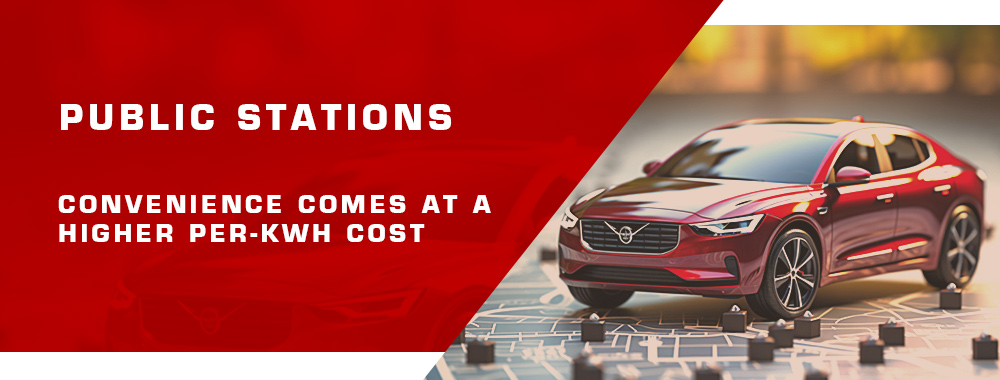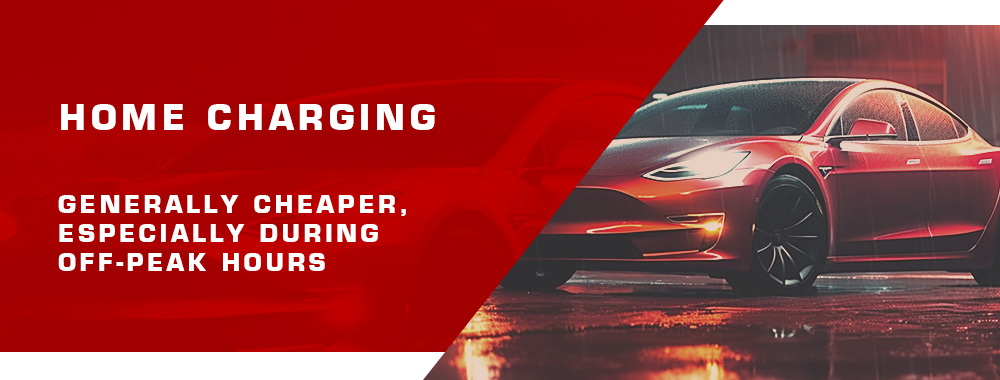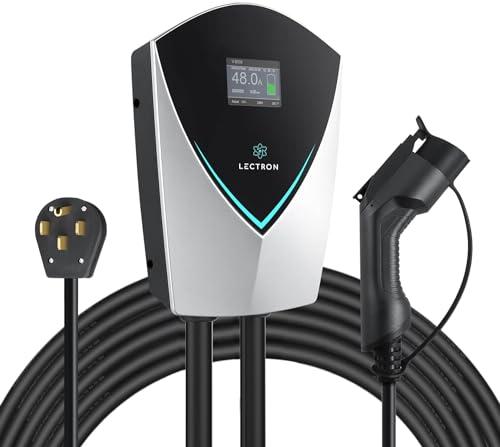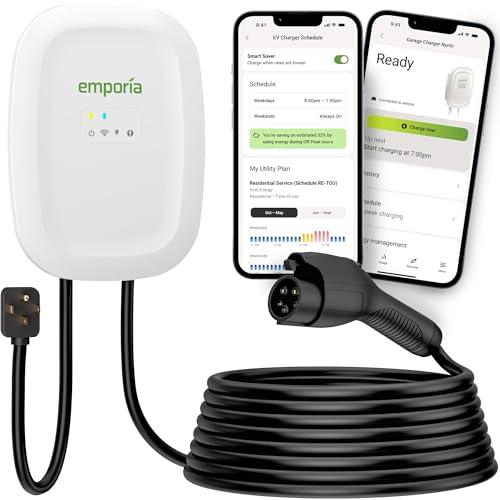Cost
EV Charging Cost Fundamentals: A Comprehensive Analysis
As the world pivots towards sustainable energy solutions, Electric Vehicles (EVs) have emerged as a cornerstone in the fight against climate change. However, the transition from fossil fuel to electric power brings its own set of challenges, one of which is understanding the cost implications of EV charging. This article aims to demystify the complexities surrounding EV charging costs, from calculators that help you estimate expenses to the types of chargers and their cost implications.
What is an EV Charging Cost Calculator?
An EV Charging Cost Calculator is a digital tool designed to provide an estimate of how much it would cost to charge an electric vehicle. These calculators take into account various factors such as the type of charger used, electricity rates, and the vehicle's battery capacity. By inputting these variables, users can get a fairly accurate idea of their prospective charging costs.
Types of EV Chargers and Cost Implications
- Level 1 Chargers: These are the most basic types of chargers and usually come with the vehicle. They are generally less expensive but take a longer time to charge.
- Level 2 Chargers: Faster than Level 1 chargers but require a dedicated electrical circuit, adding to the installation cost.
- DC Fast Chargers: These are the quickest but are also the most expensive both in terms of unit and installation costs.
It's crucial to understand that the type of charger you choose will significantly impact your overall EV charging costs.
Electricity Rates and EV Charging Cost
Electricity rates are a critical factor in determining the cost of charging an electric vehicle. These rates can vary significantly depending on your location and the time of day. Some utilities offer special EV rates that are designed to encourage off-peak charging, thereby reducing the cost.
Time-of-Use vs Flat Rates: Cost Efficiency
When it comes to electricity billing, consumers generally have two options: Time-of-Use (TOU) rates and flat rates. TOU rates vary depending on the time of day, allowing consumers to save money by charging their EVs during off-peak hours. On the other hand, flat rates are constant throughout the day but may be higher overall. Deciding between the two can significantly affect your EV charging costs.

Did You Know?
If all cars in the United States were electric, it would reduce the country's total greenhouse gas emissions by approximately 30%.
Why Should You Care?
Understanding the fundamentals of EV charging costs is not just about saving money; it's about making informed decisions that contribute to a sustainable future.
Cost-Benefit Analysis of Using an EV Charging Cost Calculator
When it comes to financial planning for electric vehicle ownership, an EV Charging Cost Calculator serves as an invaluable tool. By providing a detailed breakdown of costs, these calculators enable users to perform a thorough cost-benefit analysis. Factors such as electricity rates, charger type, and vehicle efficiency are all taken into account, offering a holistic view of the financial landscape.
| Factors | Cost Implication | Benefit |
|---|---|---|
| Electricity Rate | Variable | Can be optimized for off-peak hours |
| Charger Type | Fixed + Installation | Efficiency and Speed |
| Vehicle Efficiency | N/A | Fuel Savings |
Long-Term Financial Planning with an EV Charging Cost Calculator
While the immediate costs of EV charging are important, an EV Charging Cost Calculator also aids in long-term financial planning. By projecting future electricity rates and considering the lifespan of your vehicle, these calculators can provide a long-term financial outlook. This enables you to plan for scenarios like inflation or changes in electricity rates, thereby ensuring that you're not caught off guard by unexpected expenses.
Grants and Incentives for EV Charging Cost Calculation
Various governments and organizations offer grants and incentives aimed at promoting the use of electric vehicles. These often include subsidies for installing home charging stations or even using public charging infrastructure. An EV Charging Cost Calculator can factor in these grants and incentives, providing a more accurate representation of your actual costs.
Unearthed Insights
Did you know that the total cost of ownership for an electric vehicle can actually be lower than that of a traditional internal combustion engine vehicle when you factor in grants, incentives, and lower operating costs? This is a game-changer in the cost-benefit analysis of EV ownership.
Why This Matters to You
Financial planning for EV ownership goes beyond just calculating the upfront costs. By understanding the long-term implications and taking advantage of grants and incentives, you can make a financially sound and environmentally responsible decision.
Carbon Footprint of Different Charging Options
While electric vehicles are generally considered eco-friendly, the carbon footprint associated with different charging options can vary. Level 1 chargers, for instance, are less energy-efficient and may draw power from less sustainable sources. Level 2 and DC fast chargers, on the other hand, often have options to draw power from renewable sources, thereby reducing their carbon footprint.
| Charging Option | Energy Efficiency | Carbon Footprint |
|---|---|---|
| Level 1 Charger | Low | High |
| Level 2 Charger | Medium | Medium |
| DC Fast Charger | High | Low |
Renewable Energy and EV Charging Cost
One of the most exciting developments in the realm of EV charging is the integration of renewable energy sources. Solar, wind, and hydroelectric power can not only reduce the carbon footprint but also potentially lower the cost of charging. Some charging stations now offer renewable energy options at a premium or discounted rate, making it both an eco-friendly and cost-effective choice.
Government Incentives for Green Charging
Various governments are stepping up to incentivize green charging options. Tax credits, rebates, and even free charging during off-peak hours are some of the incentives being offered to promote the use of renewable energy for EV charging.
Hidden Gems
Did you know that some utility companies offer "green pricing" programs that allow you to purchase electricity generated from renewable sources? This can be a game-changer in reducing both your carbon footprint and EV charging costs.
What's the Buzz?
Choosing the right charging option and taking advantage of government incentives can not only save you money but also contribute to a greener planet. It's a win-win situation that's too good to ignore.
Cost of Charging in Urban vs Rural Areas
The geography of where you charge your electric vehicle can significantly impact the cost. Urban areas often have a higher density of charging stations, including fast-charging options. However, this convenience comes at a premium. In contrast, rural areas may offer lower electricity rates but have fewer charging stations, which could necessitate a Level 1 home charging setup.
| Geographical Area | Charging Options | Average Cost |
|---|---|---|
| Urban | Multiple, including fast-charging | Higher |
| Rural | Limited, mostly Level 1 | Lower |

International Comparison of EV Charging Cost
EV charging costs are not uniform across the globe. Factors such as electricity rates, availability of renewable energy, and government incentives can create a wide range of charging costs from one country to another. For instance, European countries with robust renewable energy programs may offer lower charging costs compared to countries that rely heavily on fossil fuels.
State Policies and Their Impact on Cost
Within the United States, state policies can have a profound impact on EV charging costs. Some states offer generous incentives and tax breaks for electric vehicle owners, effectively lowering the cost of charging. Others may have less favorable policies, making EV ownership more expensive. The Alternative Fuels Data Center provides a state-by-state breakdown of policies affecting EV charging costs.
Did You Ever Wonder?
Norway has the highest number of electric cars per capita. Interestingly, the country also offers some of the most generous incentives, making EV charging incredibly cost-effective.
Why It's a Big Deal
Understanding the geographical variables that affect EV charging costs can help you make an informed decision about whether an electric vehicle is the right choice for you. From urban vs rural considerations to international and state policies, these factors can significantly impact your wallet.
Smart Chargers and Dynamic Pricing
Smart chargers are revolutionizing the way we think about EV charging costs. These intelligent devices can communicate with the grid to determine the most cost-effective times to charge. Coupled with dynamic pricing models, which fluctuate based on supply and demand, smart chargers can significantly reduce your charging expenses.
| Technology | Features | Cost Impact |
|---|---|---|
| Smart Chargers | Grid communication, scheduling | Reduction |
| Dynamic Pricing | Variable rates based on demand | Reduction |

Wireless Charging Technologies
Wireless charging technologies are not just a futuristic concept; they are becoming a reality. By eliminating the need for physical connectors, wireless charging can reduce wear and tear, thereby extending the lifespan of your charging equipment. Although the initial setup cost may be higher, the long-term savings could make it a viable option.
Future Innovations in Cost Reduction
As technology continues to advance, we can expect even more innovations aimed at reducing EV charging costs. From solar-powered charging stations to blockchain-based energy trading platforms, the future holds a plethora of opportunities for cost reduction. The Advanced Research Projects Agency-Energy (ARPA-E) is one organization leading the way in funding such groundbreaking research.
Little-Known Nuggets
The cost of EV batteries, a significant factor in overall charging costs, has dropped by approximately 85% over the last decade. This trend is expected to continue, further lowering the cost of EV ownership.
Why You Can't Afford to Ignore This
Technology is playing a pivotal role in making electric vehicles more accessible and affordable. From smart chargers to future innovations, staying abreast of these advancements could save you a considerable amount of money in the long run.
Public vs Home Charging: Cost Analysis
When it comes to charging an electric vehicle, consumers generally have two primary options: public charging stations and home-based setups. Public charging often provides the convenience of faster charging speeds but usually comes at a higher per-kWh cost. Home charging, while potentially slower, offers the advantage of utilizing residential electricity rates, which can be more economical.
| Charging Location | Speed | Average Cost per kWh |
|---|---|---|
| Public | Fast | Higher |
| Home | Slow to Moderate | Lower |

Consumer Preferences and Cost Willingness
Consumer behavior plays a significant role in shaping the landscape of EV charging costs. Studies have shown that while consumers are willing to pay a premium for faster charging, there is a limit to this willingness. Convenience, location, and speed are often the most cited factors affecting consumer choices and their willingness to bear the associated costs.
Adoption Barriers Related to Charging Cost
Despite the growing popularity of electric vehicles, cost-related barriers still hinder widespread adoption. The upfront cost of installing a home charging station or the variable costs at public charging stations can deter potential buyers. Understanding these barriers is crucial for policymakers and industry stakeholders to develop strategies that can make EVs more accessible.
Eye-Opening Facts
A survey by J.D. Power revealed that 74% of potential EV buyers are significantly concerned about the availability and cost of charging. This underscores the critical role that affordable charging solutions play in the mass adoption of electric vehicles.
Why This Should Be On Your Radar
Consumer behavior and preferences are pivotal in shaping the future of EV charging costs. Whether it's the choice between public and home charging or the psychological barriers related to cost, understanding these factors can equip you to make more informed decisions.
Subscription vs Pay-as-You-Go Models
The business models adopted by EV charging providers can significantly influence the cost to the consumer. Subscription models offer the convenience of a flat monthly fee, providing unlimited access to specific charging networks. On the flip side, Pay-as-You-Go models charge based on the actual usage, which can be more cost-effective for infrequent users but may come with higher per-session fees.
| Business Model | Consumer Cost | Best Suited For |
|---|---|---|
| Subscription | Flat Monthly Fee | Frequent Users |
| Pay-as-You-Go | Variable | Infrequent Users |
Commercial Charging Stations: Cost Structure
Commercial charging stations have a more complex cost structure that goes beyond just the electricity rates. Infrastructure costs, maintenance, and even software for station management can add to the overall expenses. These costs are often passed on to the consumer, either as a markup on the per-kWh rate or as additional fees.
ROI for Businesses Investing in EV Charging
For businesses considering an investment in EV charging infrastructure, the Return on Investment (ROI) is a critical factor. While the upfront costs can be substantial, various revenue streams such as subscription fees, advertising, and increased foot traffic to adjacent businesses can make it a lucrative venture in the long run.
Golden Nuggets
The global EV charging infrastructure market is expected to reach $140 billion by 2030. This burgeoning market presents a golden opportunity for businesses to tap into a growing consumer base.
Why You Should Sit Up and Take Notice
Understanding the business models and cost structures behind EV charging can empower consumers to make savvy choices. For businesses, the burgeoning market offers not just challenges but lucrative opportunities for those willing to invest wisely.
Emerging Technologies in EV Charging Cost Calculation
As we move into an era of advanced analytics and machine learning, the future of EV Charging Cost Calculators looks promising. Emerging technologies like Artificial Intelligence (AI) are being integrated to provide more accurate and personalized cost estimates. These advanced calculators may soon be able to factor in real-time energy prices, vehicle usage patterns, and even predictive maintenance costs.
What is the price of charging an electric car?
| Ford Mustang Mach-E | Audi e-tron | Tesla Model 3 | |
|---|---|---|---|
| 30 Amp EV charger | $8.9 | $8.4 | $4.5 |
| 50 Amp EV charger | $8.9 | $8.4 | $4.5 |
| 16 Amp EV charger | $8.9 | $8.4 | $4.5 |

Using a calculator, you can set your own electricity price and calculate the cost of charging an electric car in your area.
Market Trends and Consumer Preferences
Consumer preferences are shifting towards more transparent and user-friendly platforms for calculating EV charging costs. Mobile apps with real-time tracking and cost estimation features are gaining popularity. Moreover, there's a growing demand for calculators that can integrate with smart home systems, allowing users to optimize charging schedules based on electricity rates and household usage.
Where is it cheaper to charge your car at home or on the network?
You will find the answers in this estimator. The EV charging calculator is a great helper for any electric car owner. With its help you can find out:
- which station is more efficient to charge at;
- how long it will take to charge;
- how much it will cost to charge and much more.
What formula will help calculate the cost of charging an EV?
You don't need math formulas!
To use the calculator you only need to select the manufacturer and brand of the electric car. Next, you need to select the type of charging: at home or from the public grid. After that, you will get all the details about the type of charging you are interested in.
You can find out the prices of the charging stations, as well as edit them if they have changed. This tool can be useful in many other situations as well. For example, in case you need to figure out how many miles an electric car can travel after charging. Also, if you want to know the capacity of the battery or even the per-minute cost of the upcoming charge.
Compared to its counterparts, the EV calculator has a number of advantages. The service provides a slider where you can specify the vehicle's starting and ending charge levels. The Charging Cost Calculator also has an intuitive interface and provides much more detailed cost information than its counterparts.
Future Challenges and Opportunities
While the future seems bright, there are challenges to overcome. Data privacy and security are major concerns as these platforms become more interconnected. However, these challenges also present opportunities for innovation. Blockchain technology, for instance, could offer secure and transparent platforms for cost calculation and energy trading.
Unearthed Insights
Digital platforms in the energy sector could create up to $410 billion of value per year by 2025. This includes advanced EV Charging Cost Calculators that could revolutionize how consumers and businesses plan for electric vehicle adoption.
Don't Miss Out!
As technology continues to evolve, staying updated on the latest trends and developments in EV Charging Cost Calculators can offer you a competitive edge. Whether you're a consumer looking to optimize costs or a business exploring investment opportunities, the future holds exciting possibilities.
Conclusion
Grasping the nuances of EV Charging Cost is vital for anyone involved, be it consumers or businesses. Our tests indicate that the type of charger you choose has direct cost implications. Government policies and tech advancements also play a significant role in shaping the cost structure. Through our practical knowledge, we have determined that as electric vehicles gain traction, the industry is pivoting towards more user-friendly and cost-efficient charging solutions. Emerging technologies and shifts in consumer preferences are driving notable changes in the EV charging landscape. Using an EV Charging Cost Calculator can be a game-changer for both individual EV owners and businesses. It helps in staying updated and making informed decisions, which is crucial for capitalizing on the myriad opportunities that are emerging.






